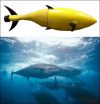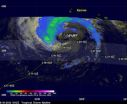(Press-News.org) Childhood vaccines do not cause autism. Barack Obama was born in the United States. Global warming is confirmed by science. And yet, many people believe claims to the contrary.
Why does that kind of misinformation stick? A new report published in Psychological Science in the Public Interest, a journal of the Association for Psychological Science, explores this phenomenon. Psychological scientist Stephan Lewandowsky of the University of Western Australia and colleagues highlight the cognitive factors that make certain pieces of misinformation so "sticky" and identify some techniques that may be effective in debunking or counteracting erroneous beliefs.
The main reason that misinformation is sticky, according to the researchers, is that rejecting information actually requires cognitive effort. Weighing the plausibility and the source of a message is cognitively more difficult than simply accepting that the message is true – it requires additional motivational and cognitive resources. If the topic isn't very important to you or you have other things on your mind, misinformation is more likely to take hold.
And when we do take the time to thoughtfully evaluate incoming information, there are only a few features that we are likely to pay attention to: Does the information fit with other things I believe in? Does it make a coherent story with what I already know? Does it come from a credible source? Do others believe it?
Misinformation is especially sticky when it conforms to our preexisting political, religious, or social point of view. Because of this, ideology and personal worldviews can be especially difficult obstacles to overcome.
Even worse, efforts to retract misinformation often backfire, paradoxically amplifying the effect of the erroneous belief.
"This persistence of misinformation has fairly alarming implications in a democracy because people may base decisions on information that, at some level, they know to be false," says Lewandowsky.
"At an individual level, misinformation about health issues—for example, unwarranted fears regarding vaccinations or unwarranted trust in alternative medicine—can do a lot of damage. At a societal level, persistent misinformation about political issues (e.g., Obama's health care reform) can create considerable harm. On a global scale, misinformation about climate change is currently delaying mitigative action."
Though misinformation may be difficult to correct, all is not lost. According to Lewandowsky, "psychological science has the potential to counteract all those harms by educating people and communicators about the power of misinformation and how to meet it."
In their report, Lewandowsky and colleagues offer some strategies for setting the record straight.
Provide people with a narrative that replaces the gap left by false information
Focus on the facts you want to highlight, rather than the myths
Make sure that the information you want people to take away is simple and brief
Consider your audience and the beliefs they are likely to hold
Strengthen your message through repetition
Research has shown that attempts at "debiasing" can be effective in the real world when based on these evidence-based strategies.
###The report, "Misinformation and its Correction: Continued Influence and Successful Debiasing," is published in the September issue of Psychological Science in the Public Interest and is written by Stephan Lewandowsky and Ullrich Ecker of the University of Western Australia, Colleen Seifert and Norbert Schwarz of the University of Michigan, and John Cook of the University of Queensland and the University of Western Australia.
The report also features a commentary written by Edward Maibach of George Mason University.
The full report and the accompanying commentary are available free online.
To read the full report, visit: http://psi.sagepub.com/content/13/3/106.full
To read the commentary, visit:http://psi.sagepub.com/content/13/3/105.full
For more information about this study, please contact: Stephan Lewandowsky at stephan.lewandowsky@uwa.edu.au.
Psychological Science in the Public Interest is a journal of the Association for Psychological Science. It publishes an eclectic mix of thought-provoking articles on the latest important advances in psychology. For a copy of the article "Misinformation and Its Correction: Continued Influence and Successful Debiasing" and access to other Psychological Science in the Public Interest research findings, please contact Anna Mikulak at 202-293-9300 or amikulak@psychologicalscience.org.
Misinformation: Psychological Science shows why it sticks and how to fix it
2012-09-20
ELSE PRESS RELEASES FROM THIS DATE:
Ultra-distant galaxy spied amidst cosmic 'Dark Ages'
2012-09-20
Pasadena, CA— With the combined power of NASA's Spitzer and Hubble Space Telescopes, as well as a cosmic magnification effect, a team of astronomers, including Carnegie's Daniel Kelson, have spotted what could be the most distant galaxy ever seen. Light from the young galaxy captured by the orbiting observatories was emitted when our 13.7-billion-year-old universe was just 500 million years old. Their work is published September 20 by Nature.
The far-off galaxy existed within an important era when the universe just emerged from the so-called cosmic Dark Ages. During this ...
Robotic tuna is built by Homeland Security
2012-09-20
No question about it… they're very good at what they do. But they don't take well to orders, especially those to carry out inspection work in oily or dangerous environments, or in any kind of harsh environment, for that matter. Still, they're one of the fastest and most maneuverable creatures on the planet, having extraordinary abilities at both high and low speeds due to their streamlined bodies and a finely tuned muscular/sensory/control system.
This impressive creature is the humble tuna fish.
The Department of Homeland Security's (DHS) Science and Technology ...
NASA satellite sees fading rainfall in Tropical Storm Nadine
2012-09-20
Tropical Storm Nadine continues to bring rains and winds to the Azores in the eastern Atlantic Ocean, but that rainfall continues to diminish according to data from NASA satellites. NASA's unmanned Global Hawk aircraft is also exploring the storm today, Sept. 19.
A tropical storm warning is in effect on Sept. 19 for the islands of Flores, Corvo, Faial, Pico, Sao Jorge, Graciosa, Terceira, Sao Miguel and Santa Maria in the Azores.
The Tropical Rainfall Measuring Mission (TRMM) satellite flew over Nadine on Sept. 19 at 1013 UTC (6:13 a.m. EDT) and captured data on rainfall ...
Arctic sea ice hits smallest extent in satellite era
2012-09-20
The frozen cap of the Arctic Ocean appears to have reached its annual summertime minimum extent and broken a new record low on Sept. 16, the National Snow and Ice Data Center (NSIDC) has reported. Analysis of satellite data by NASA and the NASA-supported NSIDC at the University of Colorado in Boulder showed that the sea ice extent shrunk to 1.32 million square miles (3.41 million square kilometers).
The new record minimum measures almost 300,000 square miles less than the previous lowest extent in the satellite record, set in mid-September 2007, of 1.61 million square ...
Climate scientists put predictions to the test
2012-09-20
Climate-prediction models show skills in forecasting climate trends over time spans of greater than 30 years and at the geographical scale of continents, but they deteriorate when applied to shorter time frames and smaller geographical regions, a new study has found.
Published in the Journal of Geophysical Research-Atmospheres, the study is one of the first to systematically address a longstanding, fundamental question asked not only by climate scientists and weather forecasters, but the public as well: How good are Earth system models at predicting the surface air temperature ...
Kelsey McBride PR Signs Author Robert Radcliffe
2012-09-20
Kelsey McBride, president of Kelsey McBride PR, officially announced today that Robert Radcliffe, author of 180 Degrees, signed on for her agency's PR services.
180 Degrees, by Robert Radcliffe, is an inspiring true story of a once homeless kid addicted to drugs, turned sober, self made millionaire by the age of 30.
"I turned my life around 180 degrees. I went from being a daily-using drug addict and occasional 'big shot' dealer to, eventually, a homeless junkie living on the streets. Today I am a completely sober, self-reliant, self-employed husband, father, ...
Jade Esteban Estrada Offers A Taste of HA!lapeño
2012-09-20
Acclaimed multi-media entertainer Jade Esteban Estrada will bring his special Latin flavor of stand-up comedy to National Hispanic Heritage Month, with a national tour and a special deal on his first comedy DVD.
During September and October, the comedian will offer his stand-up comedy DVD, "That Is So Gay!", for a discounted price of only $10. The deal - dubbed the HA!lapeño Especial - comes as Estrada prepares to launch his HA!lapeño Tour, which will include an appearance at the Ventura Harbor Comedy Club in Ventura, California on Thursday, September 27, as ...
AppTech Announces Resignation of Elias Rocha as CEO; Appointment of Ulrik Remy as New CEO
2012-09-20
On September 3rd 2012 Elias Rocha announced his resignation as AppTech's CEO for personal reasons and AppTech is pleased to announce the appointment of Ulrik Remy as the company's new CEO. Originally from Germany, Mr. Remy now calls Florida "home" and he assumes his new role recognizing the difficulty of road ahead but also looking forward to installing a new spirit of open communication with shareholders and the public. Remy, as he likes to be called, has more than 25 years of management experience both in Germany and the U.S. In addition, Remy is well experienced ...
Two Men And A Truck Sacramento Movers Blog About How To De-Clutter Your Home
2012-09-20
In a recent blog article Sacramento Moving Company gave tips on how to de clutter the home for the fall and winter months. Who says Spring cleaning must only happen in the Spring? Fall is the perfect time to sort through the clutter. Think about it... with more time spent in-doors during the cold winter months wouldn't it be nice to have a tidy, clutter-free home to spend time in? Set aside some time to sort through those stacks of paperwork, magazines, photographs, and miscellaneous boxes hidden away in the attic.
As you get started on the de-cluttering project, you ...
K2M Receives Pediatric Clearance for MESA & Rail 4D Spinal Systems
2012-09-20
K2M, Inc., the largest privately held spinal device company in the world focused on developing innovative solutions for the treatment of complex spinal pathologies and minimally invasive procedures, today announced that it has received an additional clearance to treat adolescent idiopathic scoliosis. The pediatric clearance applies to the company's MESA Deformity (ø5.5 mm), MESA Rail Deformity (ø5.5 mm), MESA Small Stature (ø4.5 mm), and MESA Rail Small Stature (ø4.5 mm) Spinal Systems.
"K2M is deeply committed to advancing care for scoliosis patients and we have ...



